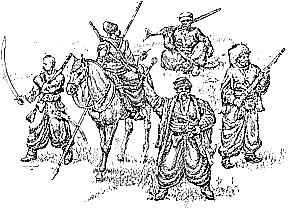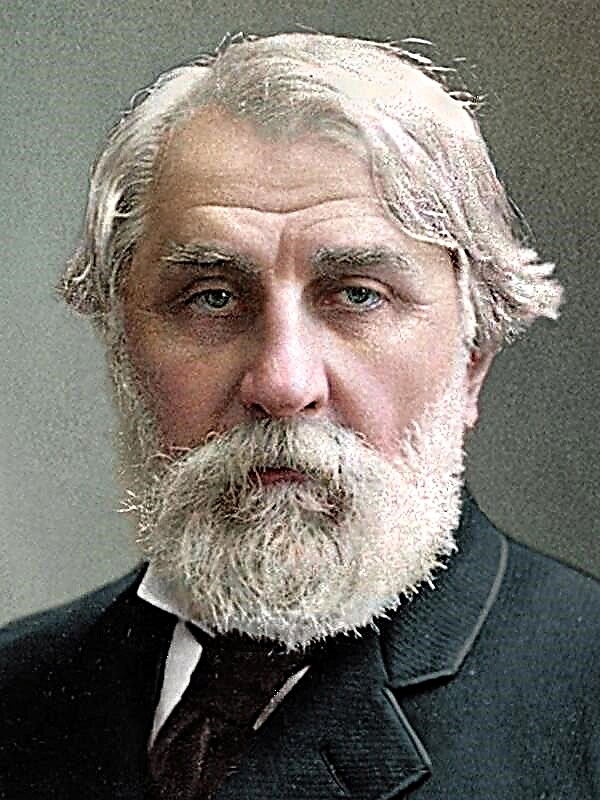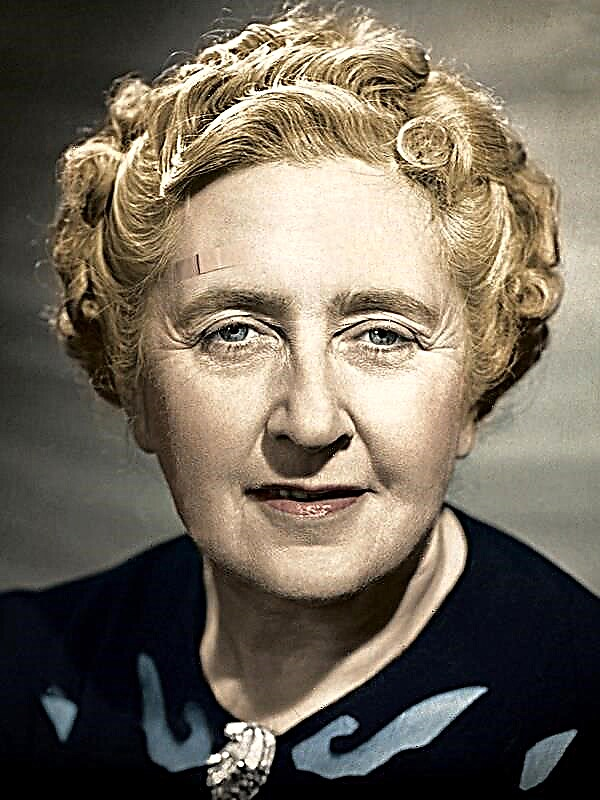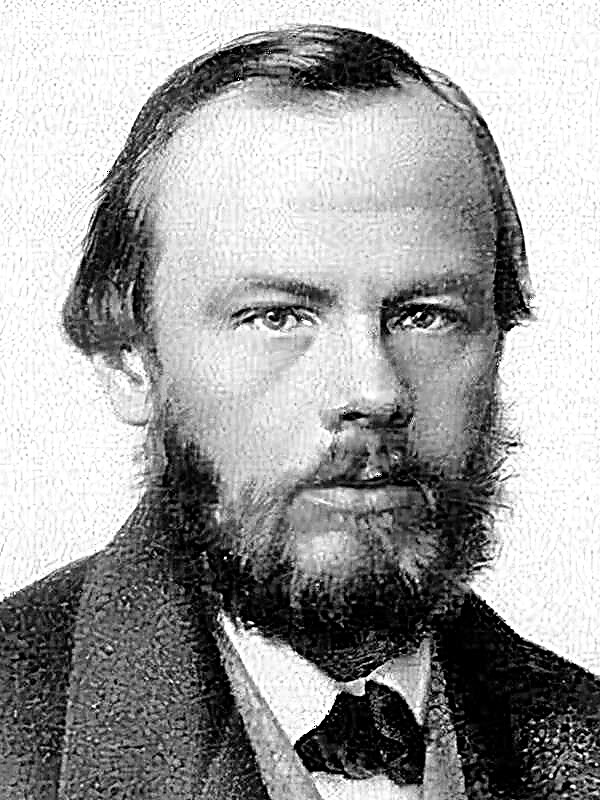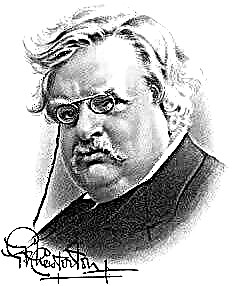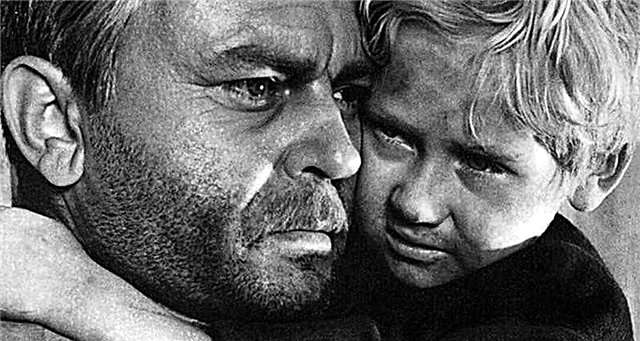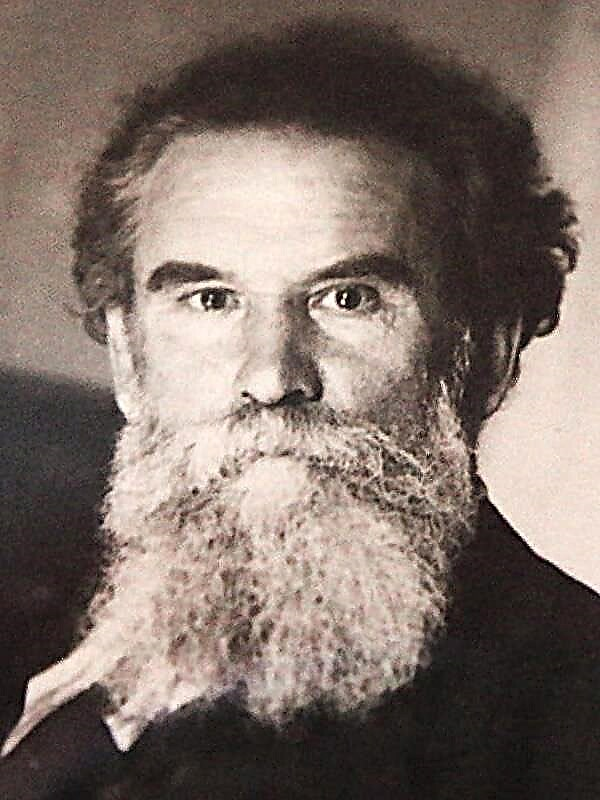The action of the novel-trilogy of Halldor Laxness (part one - “Icelandic bell”, part two - “Golden-haired maiden”, part three - “Fire in Copenhagen”) takes place at the end of the XVI - beginning of the XVII century. in Iceland and Denmark, as well as in Holland and Germany, where during his wanderings one of the main characters gets into - the poor peasant Jone Hreggvidsson.
The meaning of the name of the trilogy is revealed in the very first chapter, when, by order of the royal executioner, the arrested Jone Hreggvidsson drops to the ground and breaks into pieces the old bell - the ancient shrine of Iceland. The Danish crown, which at that time owned Iceland and waged protracted wars, required copper and bronze.
In the center of the story are the figures of three people whose fates are intricately intertwined against the background of real historical events. In addition to Joun Hreggvidsson, this is the daughter of a judge, a representative of one of the most notable families, the “Sun of Iceland”, the golden-haired Jomfru Snaifridur and a learned historian who devoted his whole life to finding and preserving ancient Icelandic manuscripts, close to the Danish king Arnas Arneus.
Jone Hreggvidsson, who lives in hopeless poverty and rents his land from Jesus Christ, does not disdain additional “earnings”, such as: he can pull a piece of rope to fix fishing tackle or a fishing hook (working on the ground, it’s difficult to feed; the main source of food nutrition of Icelanders - the sea). For these crimes, Yone is periodically imprisoned and subjected to other punishments, such as whipping.
In the end, he is accused of killing the royal executioner and sentenced to death.
However, according to an unknown whim of fate, it is in the poor hut of this poor peasant that a priceless treasure is stored - several sheets of parchment of the 13th century with a fragment of the text “Skalda” - Icelandic legend about the heroes of antiquity applied to them. Just the day after the executioner’s corpse was discovered in the swamp, but even before Joun Hreggvidsson was tried for murder, Arnas Arneus, accompanied by his lover Snaifridur, comes to the hut and buys these priceless parchment papers from Joun’s mother, unsuitable even for having to fix the shoes.
Later, this episode was destined to be decisive for the fate of both Yone and other heroes.
Yone is tried and sentenced to death.
On the eve of execution, Snaifridur bribes the guard and saves Yoon from death.
Only one person can achieve a review of the case - this is Arnas Arneus, who had by then left for Denmark. Snaifridur gives Yoon his ring and helps to flee the country. Through Holland and Germany, having undergone numerous adversities, several times miraculously escaping death, but still retaining the ring of Jomfru Snaifried, John finally ends up in Copenhagen and meets Arneus, who by that time had spent almost his entire fortune on the purchase of Icelandic antiquities and was forced to marry on a rich but ugly hunchback.
In the end, Arnaeus manages to get the murder case reviewed. Jone Hreggvidsson receives a letter of protection, with which he returns to his homeland, where his case must be heard again. Judge Eidalin, father of Yomfru Snaifridur, apparently fearing the publicity of the old story about how his daughter helped the convicted criminal to escape, enters into a conspiracy with the peasant: no one will touch that, but he, in turn, must remain silent about his case.
Fifteen or sixteen years elapse between the events of the first and second books of the trilogy. During this time, Yomfru Snaifridur, desperate to wait for his lover, marries the drunkard and the rude Magnus Sigurdsson, who, during his long bouts, squanders the whole fortune, and in the end even sells his wife to two crooks for a keg of vodka.
Snaifridur steadfastly bears his cross, refusing all attempts to persuade her to divorce her husband and find a more worthy spouse, which could be her "patient groom" pastor Sigurdur Sveinsson. Since she cannot have the best and most desired share, she is ready to endure humiliation and deprivation, but does not agree to something in between.
Meanwhile, Arnas Arneus returned to Iceland from Denmark, having the wide powers given to him by the king. He seeks, as far as possible, to alleviate the fate of Icelanders, who suffer both from adversity caused by harsh living conditions on the island, and from ruthless exploitation by the metropolis, which has monopoly rights to all external relations of Iceland. In particular, Arneus orders to destroy all the flour brought by Danish merchants, since it is unsuitable for food - ticks and worms are teeming with it.
Arneus is also starting a review of some of the old cases in which, in his opinion, unfair sentences had been passed in the past.
The case of Jone Hreggvidsson also comes up. It becomes a pretext for initiating proceedings against Judge Eidalin himself, who entered into a conspiracy with the convicted person and who dared to violate the order contained in the royal letter.
At the same time, the husband of Snaifridur Magnus Sigurdsson filed a complaint against Arnas Arneus himself, accusing him of criminal connection with his wife. Magnus is supported by pastor Sigurdur Sveinsson, not only when he highly respected the highly learned husband Arnas Arneus, but now sees in his work a threat to the ruling elite of Icelandic society and personally to the father of his “bride”. After lengthy proceedings, Arneus manages to win both cases. Judge Eidalin is being stripped of his honor and all posts, and his property is being taken over by the Danish crown.
However, a judicial victory costs Arnas Arneus a lot. Not only did he not gain popularity among the people, but, on the contrary, everyone, even pardoned criminals, began to curse him for destroying the eternal foundations of society and insulting respectable, respected people, including Judge Eidalin. Arneus is also charged with the fact that, having destroyed the worm flour, he actually deprived the Icelanders of food and condemned them to hunger, because, apart from Denmark, the Icelanders have no other food sources (except for fish).
In a year or two, which passed between the events of the second and third books, dramatic changes take place in the fate of the heroes, and above all, Yomfru Snaifridur and Arnas Arneus. The plague epidemic in Iceland takes the lives of sister Jomfru and her sister's husband - the bishop of Skalholt. Yomfru's father, judge Eidalin, dies. In Denmark, the former king dies, encouraging Arneus' occupation of Icelandic antiquities. The interests of the new king lie in a completely different area - he is occupied only by hunting, balls, and other entertainments. Arnas Arneus falls into disgrace at court and loses his former strength and power, which his enemies did not fail to take advantage of, in particular, the rogue Jone Martainsson, who steals books from the Arneus library and secretly sells them to the Swedes. Among the books he stolen was the priceless Skalda.
The same Yone Marteynsson in every possible way helps the opponents of Arneus to seek a review of the old sentences issued in the past in cases that Arneus considered, having the authority from the former king of Denmark. In particular, he manages to ensure that the husband of yomfru Snayfriedur Magnus Sigurdsson wins the old case of insulting his dignity Arneus. However, on the very evening when the case was won, Yone Martainsson kills Magnus.
Yomfru Snaifridur herself begins a lawsuit against Arneus in order to restore the good name of his father and return his possessions. Again, the case of Joun Hreggvidsson comes up, who is again arrested and brought under guard to Denmark, where he is imprisoned, but then released, and he becomes a servant in the house of Arnas Arneus. The king’s disgrace, lack of support at court - everything suggests that this time fate turned away from Arneus and he was destined to lose the trial.
Meanwhile, the King of Denmark, whose treasury was emptied as a result of a wasteful lifestyle, decides to sell Iceland, the contents of which are too expensive. Already in the past, the Danish crown was negotiating the sale of the island, making such proposals to England, but then the deal did not take place. This time, Hanseatic merchants from Germany took a serious interest in it. The point is small - you need to find a person who could become the governor of the island. This must certainly be an Icelander - history has already shown that any strangers in this position do not stay alive for long, arriving in Iceland. This must be a person who is respected in his homeland. The natural choice of merchants is Arnas Arneus.
Having received such an offer, Arneus faces a difficult dilemma. On the one hand, the Danish crown’s monopoly on the possession of the island and the merciless exploitation of its inhabitants lead to innumerable sufferings of Icelanders, which means that Iceland’s transfer under the authority of the German emperor can ease the fate of the people. On the other hand, Arneus understands that this is only a transition to a new, albeit more well-fed slavery, from which there will be no way out. “Icelanders will at best become fat servants in a German vassal state,” he says. “A fat servant cannot be a great man.” The slave being beaten is a great man, for freedom lives in his heart. ” Arneus does not want such a fate for the people who composed the greatest legends, and therefore rejects the offer of the German merchants, although for him the new position promised the greatest blessings, including the opportunity to arrange a personal fate with his beloved.
Dramatic changes occur in the very characters of the main characters. At the end of the story, Arnas Arneus is no longer that brilliant nobleman and highly learned husband, full of great plans to save the national heritage of his homeland. This is an infinitely tired person, he was not even too upset by the loss of the main treasure of his life - Skaldy. Moreover, when a fire that breaks out in Copenhagen destroys his entire library, Arnas Arneus watches a riot of fire with some sort of detached indifference.
The character of Yomfru Snaifridur is also changing. Despite the fact that she manages to defend in court the good name of her father and regain all his estates, this brings her little joy. A woman who was once proud and independent in her thoughts and deeds, who dreamed of a time when she would ride white horses with her lover, resigned herself to her fate and agreed to marry the “patient groom” pastor Sveinsson, who had been appointed bishop in Skalholte instead of the deceased husband of Sister Sayfriedour.
In the final scene of the novel, the very aged Jone Hreggvidsson, who this time received obviously the final forgiveness in his case, watches the couple go to their permanent residence in Skalholt. Black horses glisten in the morning sun.



